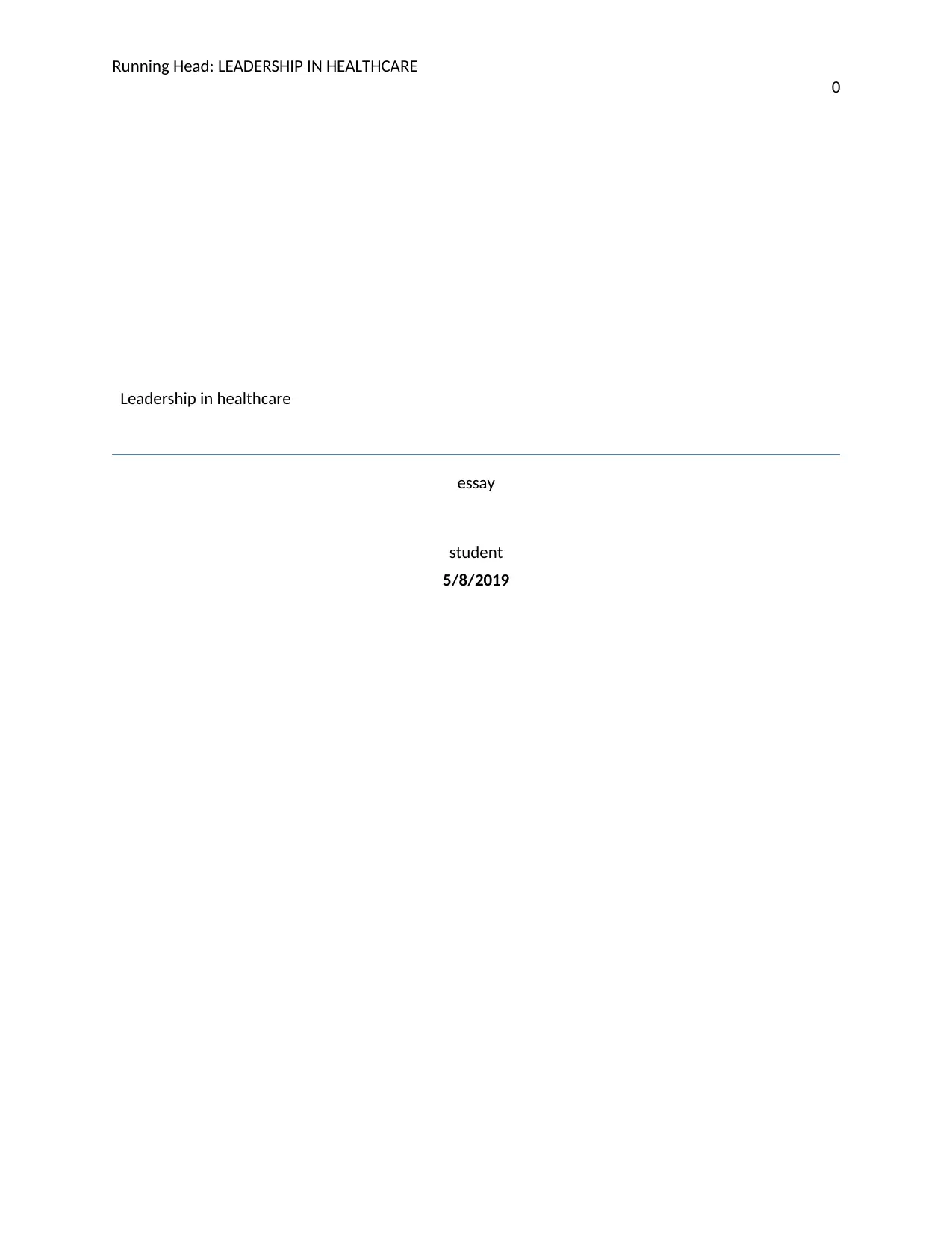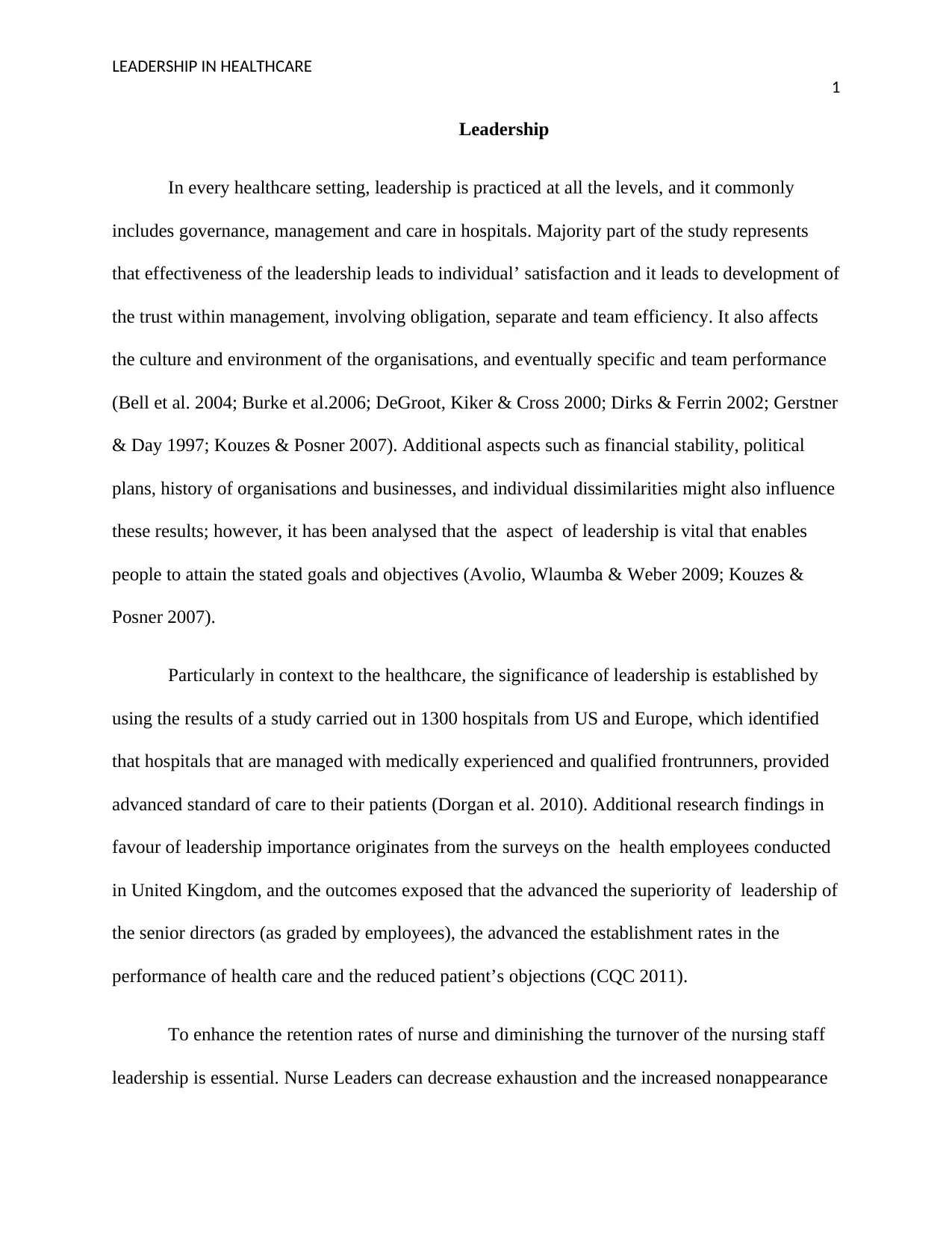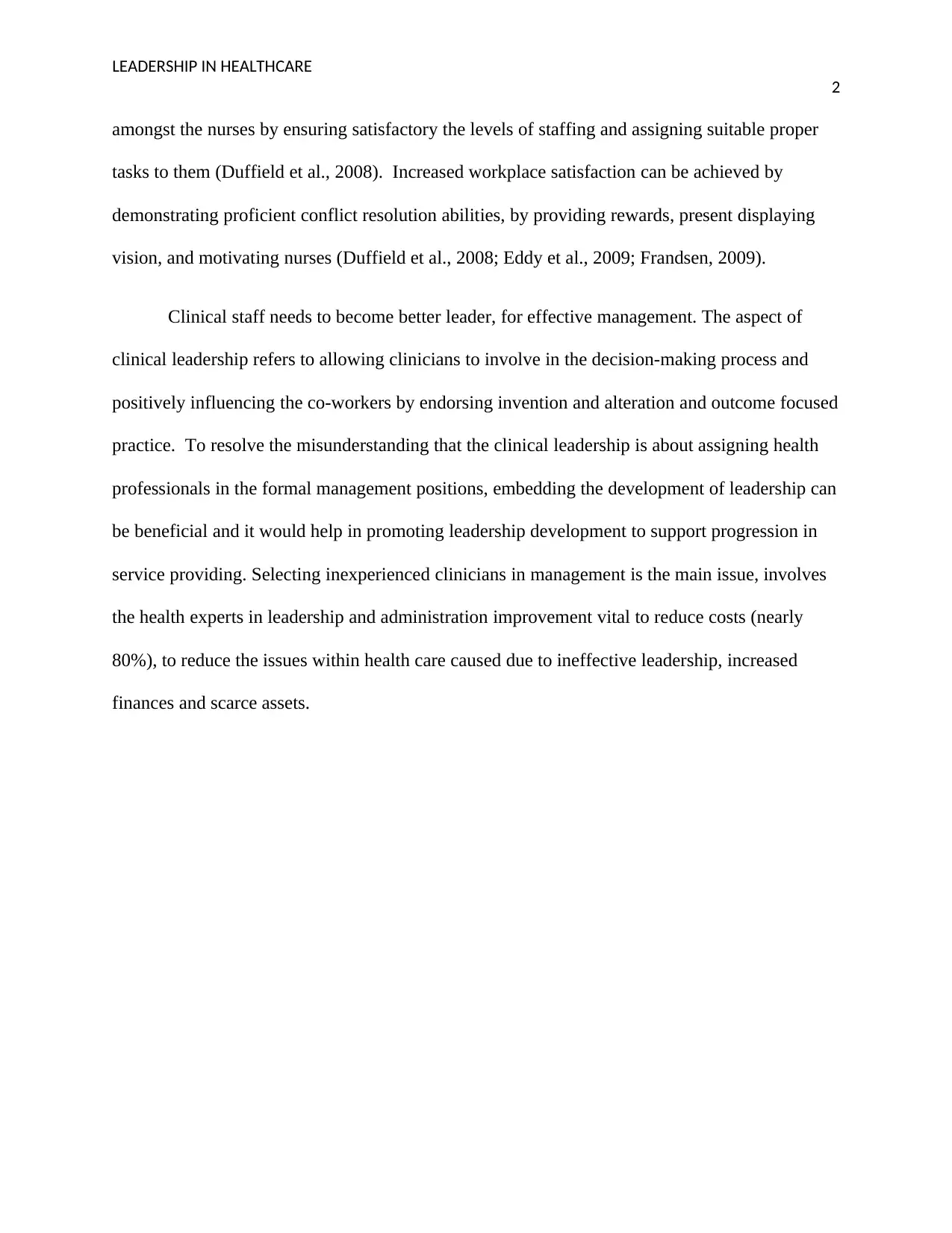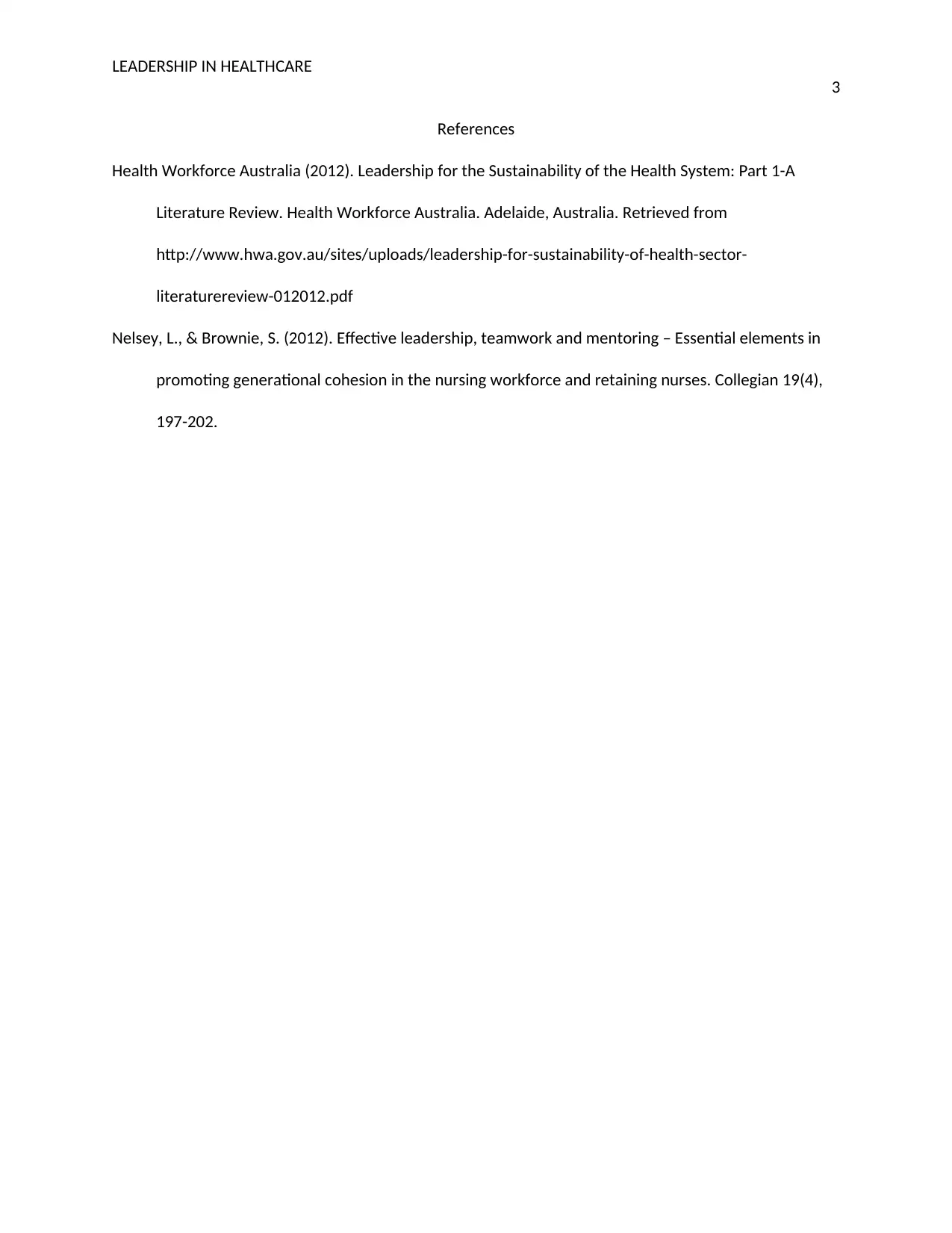Healthcare Leadership Essay: Role, Impact, and Strategies for Success
VerifiedAdded on 2023/01/18
|4
|628
|20
Essay
AI Summary
This essay examines the pivotal role of leadership across various levels of healthcare, including governance, management, and clinical care. It emphasizes the profound impact of effective leadership on individual and team performance, organizational culture, and patient outcomes. The essay references studies conducted in the US and Europe, highlighting that hospitals with medically experienced leaders provide a higher standard of care. It also explores the importance of leadership in enhancing nurse retention, reducing staff turnover, and improving workplace satisfaction. Furthermore, the document underscores the significance of clinical leadership, advocating for clinician involvement in decision-making. It concludes by highlighting the need for leadership development to address inefficiencies and cost issues within healthcare, with references to key research findings.
1 out of 4









![[object Object]](/_next/static/media/star-bottom.7253800d.svg)